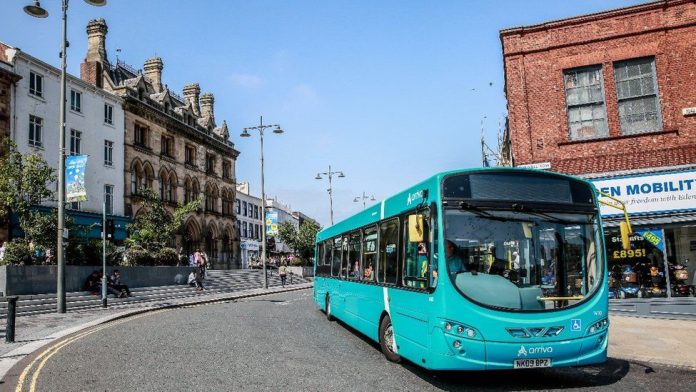Research published today by Transport for the North (TfN) – Transport and social exclusion in the North in 2023/24 report – reveals that more than two in five disabled residents, carers, and low-income residents in a range of areas of the North of England are facing social exclusion because of inadequate and poorly performing transport systems.
Underlying this, TfN’s analysis of Department for Transport statistics shows that bus service mileage in the North has been cut by almost a third since 2010. These cuts have severely impacted the health, incomes, and everyday lives of residents across the region, and are key cause of social exclusion.
The new survey of 1,407 disabled residents, low-income residents, and informal carers in Leeds, Liverpool, Middlesbrough, York, and North Yorkshire demonstrates the depth of impact that bus service cuts and other transport issues have on everyday life
44% faced at least one form of social exclusion specifically because of transport issues, and 21% faced multiple forms of social exclusion while 26% said that the money they spend on transport makes it difficult to afford other essential items, like utility bills and food shopping.
23% said their everyday journeys caused them significant stress and anxiety. This was particularly common among disabled residents and 31% of those with a disability that has a major impact on their everyday life had not travelled for leisure purposes at all in the last month, compared with 4% of non-disabled respondents.
The research also demonstrated how the lack of viable local public transport options for everyday journeys increases the strain on household finances and reduces independence. This includes many having no alternative to car and taxi travel but suffering major financial hardship from having to run and maintain a car or take regular taxi journeys
Martin Tugwell, Transport for the North Chief Executive, said:
“Local public transport is the foundation to grow economies, provide more sustainable travel choices, and deliver a good quality of life for all. This new research demonstrates the price residents pay when they don’t have access to decent quality public transport options – financial hardship, poor health, or social isolation.
“We need to change how we plan, develop, invest, and deliver transport improvements to benefit people and places. Buses are a lifeline, playing a vital role in everyday life across the country, enabling people to access services and opportunities. And we know that a better, more reliable public transport offer – including buses – can encourage more sustainable travel choices. More sustainable travel is essential to achieving the North’s ambition for near-zero surface transport emissions by 2045.
:







